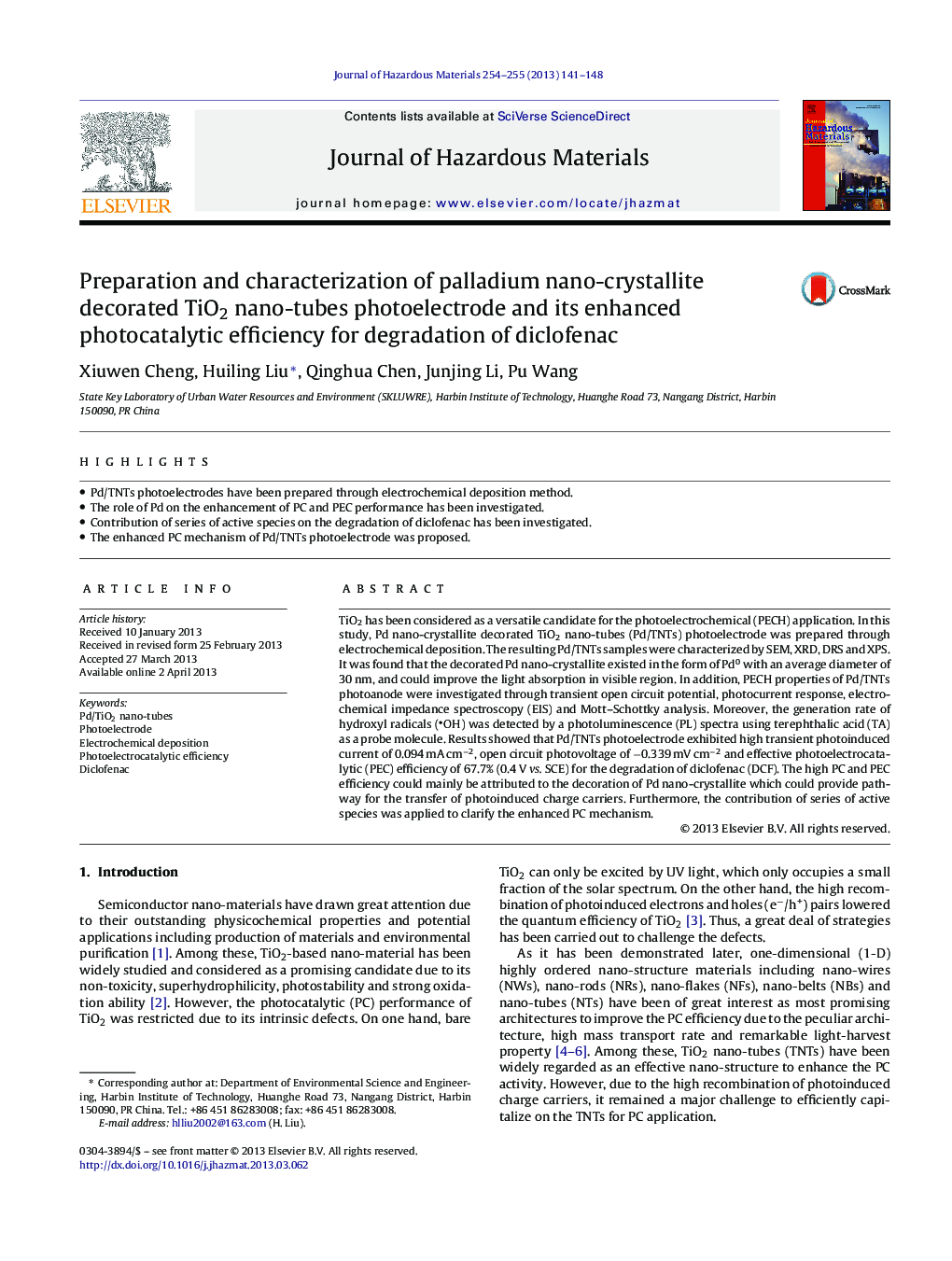| Article ID | Journal | Published Year | Pages | File Type |
|---|---|---|---|---|
| 577252 | Journal of Hazardous Materials | 2013 | 8 Pages |
Abstract
TiO2 has been considered as a versatile candidate for the photoelectrochemical (PECH) application. In this study, Pd nano-crystallite decorated TiO2 nano-tubes (Pd/TNTs) photoelectrode was prepared through electrochemical deposition. The resulting Pd/TNTs samples were characterized by SEM, XRD, DRS and XPS. It was found that the decorated Pd nano-crystallite existed in the form of Pd0 with an average diameter of 30Â nm, and could improve the light absorption in visible region. In addition, PECH properties of Pd/TNTs photoanode were investigated through transient open circuit potential, photocurrent response, electro-chemical impedance spectroscopy (EIS) and Mott-Schottky analysis. Moreover, the generation rate of hydroxyl radicals (OH) was detected by a photoluminescence (PL) spectra using terephthalic acid (TA) as a probe molecule. Results showed that Pd/TNTs photoelectrode exhibited high transient photoinduced current of 0.094Â mAÂ cmâ2, open circuit photovoltage of â0.339Â mVÂ cmâ2 and effective photoelectrocatalytic (PEC) efficiency of 67.7% (0.4Â V vs. SCE) for the degradation of diclofenac (DCF). The high PC and PEC efficiency could mainly be attributed to the decoration of Pd nano-crystallite which could provide pathway for the transfer of photoinduced charge carriers. Furthermore, the contribution of series of active species was applied to clarify the enhanced PC mechanism.
Related Topics
Physical Sciences and Engineering
Chemical Engineering
Chemical Health and Safety
Authors
Xiuwen Cheng, Huiling Liu, Qinghua Chen, Junjing Li, Pu Wang,
